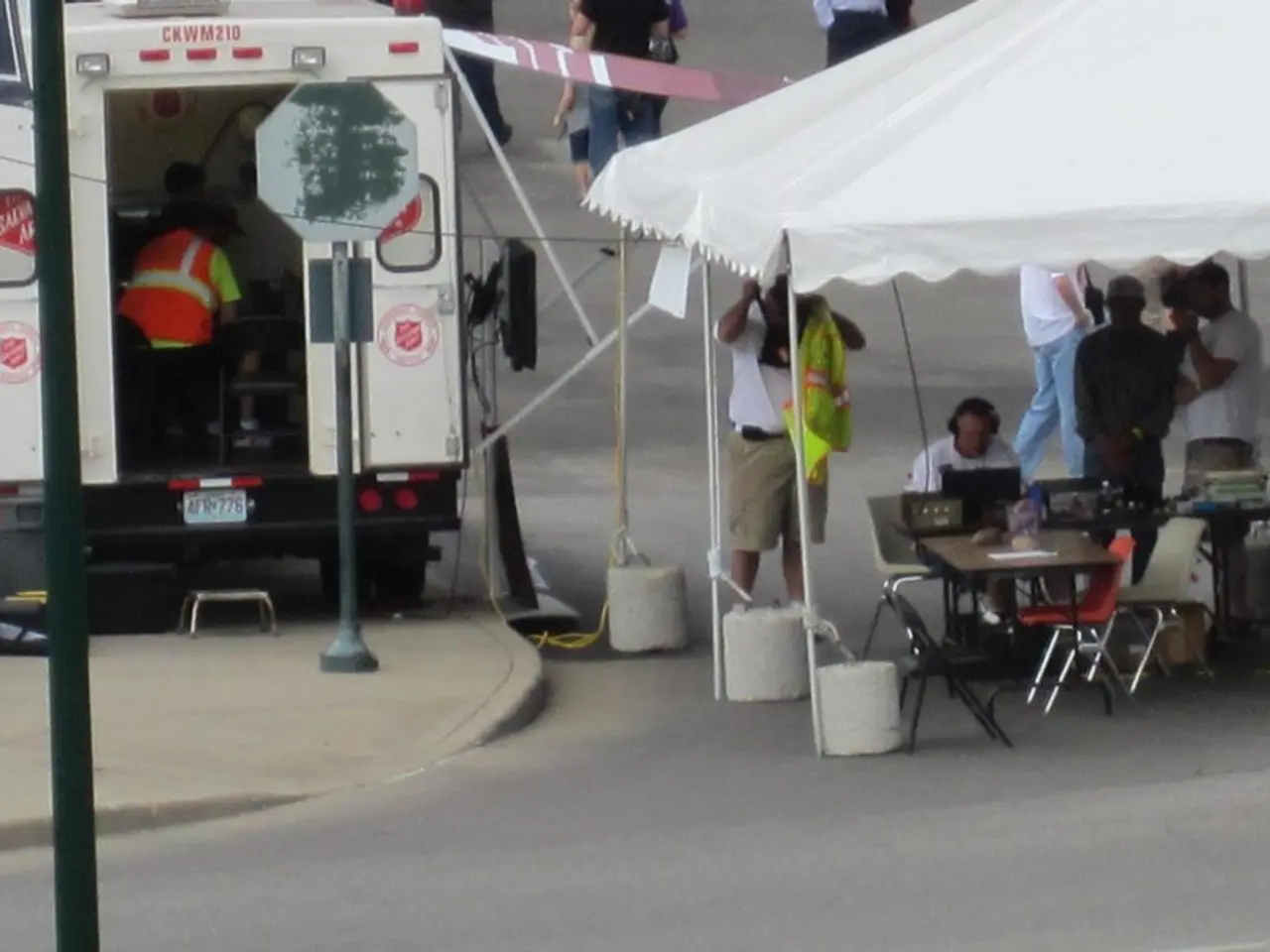Trump representative Steve Witkoff, along with Mike Huckabee, to tour Gaza disaster zones amidst escalating food shortage crisis
In the heart of the Middle East, the Gaza Strip is experiencing a spiraling hunger crisis, with the situation becoming increasingly dire. Reports indicate that 48 people were tragically killed while waiting for food in Gaza on Wednesday, underscoring the urgency of the situation.
Israel, a key player in the region, has been criticised for the lack of food deliveries in Gaza. The United Nations (UN) has pointed fingers at Israel, with aid reportedly piled up inside the Gaza Strip, ready to be distributed to hungry Palestinians, but large-scale delivery severely hampered.
Humanitarian aid distribution in Gaza remains critically constrained and insufficient to meet urgent needs. While some aid, including food and medical supplies, is entering Gaza, large-scale delivery is obstructed by logistical bottlenecks, security risks, and restrictions imposed chiefly by Israeli authorities. This has resulted in massive suffering and death among civilians.
As of early August 2025, aid partners delivered about 259,000 meals through community kitchens, a sharp 74% reduction from earlier in the year. Over 12,000 metric tons of food items entered Gaza between late July and early August, mostly through Israeli-controlled crossings Zikim and Kerem Shalom. However, rampant looting, offloading of supplies by desperate crowds en route, and delays at border crossings have significantly reduced the actual amount reaching people.
Israel controls entry points and frequently denies or delays humanitarian coordination requests, significantly limiting the movement of aid workers and supplies. Only 10% of coordination requests by Palestinian Civil Defense forces were granted, leading to preventable deaths among injured people who couldn’t receive help. Aid convoys face dangerous conditions, including casualties from Israeli forces firing on those gathering at distribution sites.
The US has facilitated some aid deliveries through its support of UN-coordinated mechanisms and border crossings but has not overcome the severe restrictions and blockade imposed by Israel. The humanitarian situation is described as a crisis with near-famine conditions.
In an effort to address this crisis, Steve Witkoff, President Trump's Special Envoy to the Middle East, is scheduled to visit Gaza on August 1. During his visit, he will present a plan to deliver additional humanitarian assistance to Gaza and meet with Israeli Prime Minister Benjamin Netanyahu to discuss the Gaza cease-fire and the release of Hamas hostages.
President Trump has condemned the slowing of aid deliveries in Gaza by Hamas and has urged for their surrender and the release of hostages as a solution to the humanitarian crisis. He has also called for the US and other nations to provide food to Gaza's refugee population, contradicting Prime Minister Netanyahu's claim of no starvation in Gaza, stating that he does not find it particularly accurate due to images of emaciated and crying children.
The UN and humanitarian agencies repeatedly call for the immediate resumption of large-scale, safe, and unimpeded humanitarian access, alongside a ceasefire to allow predictable aid delivery to Gaza’s 2.1 million residents. Israel's actions, or lack thereof, in facilitating aid delivery have been condemned by UN experts as a form of "humanitarian camouflage" that contributes to starvation.
In the face of this crisis, it is clear that urgent action is needed to alleviate the suffering of the people of Gaza and ensure the delivery of essential aid.
The media has widely reported on Israel's criticism for the lack of food deliveries in Gaza, with the United Nations (UN) accusing Israel of hampering large-scale aid delivery, leading to a critically constrained humanitarian situation. In politics, discussions revolve around the Gaza crisis, with President Trump urging for the immediate resumption of safe and unimpeded humanitarian access, calling out Israel's actions as contributing to starvation. General news remains focused on the war-and-conflicts in the Middle East, with crime-and-justice concerns also arising as rampant looting and delays at border crossings reduce the actual amount of food reaching civilians in Gaza.






